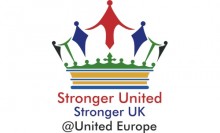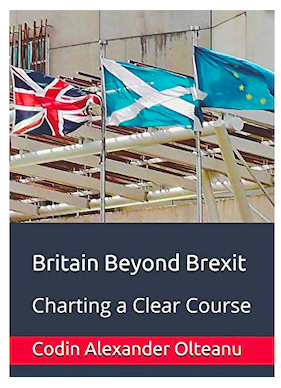The UKIP is in many ways the ghost haunting the Brexit Referendum and also its main beneficiary. Founded in 1993 and led by charismatic Nigel Farage, the party was set up by an eclectic group of populist nationalists and disillusioned Tory Eurosceptics who were alarmed at the rise of Nick Griffin's British National Party. They decided to create a more acceptable mainstream nationalist organization capable of both blunting the BMPs rise and of radicalizing the British Conservative party’s position on Europe. In this they succeeded admirably: following the most recent 2014European elections, UKIP became the largest UK party with 22 MEPs in the Strasbourg Parliament. It has as well one member in the Westminster House of Commons and three representatives in the House of Lords. Combined with its 2013 breakthrough in local British elections the UKIP’s success in the 2014 Euro-elections constituted the main driver in the Eurosceptic Tories’ increased push for a referendum.
The UKIP’s greatest concentration of supporters is in England's Midlands and Northeast as well as in Devon and Cornwall. A measure of its internal democratic structures is the conflict between its only Westminster MP - a former member of the Tory party - and its leader Nigel Farage on the question of which of the ‘leave’ groups to support for certification with the UK Electoral Commission, as well as on the charade of Farage’s resignation after failing to win the seat of South Thannet in the House of Commons - followed by his reinstatement three days later by a party aware of his charisma with a certain section of the electorate.
Niger Farrage’s aggressive brand of politics regurgitating inflammatory and accusatory language in the European Parliament against both Euro-MPs and members of the European Commission and accusing them to be unaccountable, or unelected bureaucrats have no legitimacy to speak in the name of any European nation mirrors the attitude of other right-wing populist parties across the continent - including France's Front National led by Marine LePen and an increasing number of burgeoning East European nationalist-authoritarian parties that have had success at the latest European Parliament elections and are now grouped in the European Freedom in Direct Democracy organization of the European Parliament.
De facto leader of the ‘leave’ the EU movement, Nigel Farage has smartly seized the initiative by defining the referendum as a contest between the widely despised London élites arguing for a vote to ‘stay in’ Europe and the angry, frustrated, grassroots antiestablishment electorate he is trying to galvanize and motivate to vote to ‘leave’ the European Union - primarily as a protest vote against the entrenched Westminster and City establishment who has been misgoverning Britain for far too long. Together with major UKP donor Arron Banks Nigel Farage has organized or supported to so-called ‘Grassroots Out’ and ‘Leave.EU’ organizations which have taken the ‘leave the EU’ message across the UK in an attempt to mobilize disenchanted voters who otherwise might not vote and thus ensure Britain's exit from the European Union.
The UKIP’s strategy is to ensure that Britain does leave the EU and thereby cause a deep split in the Tory party between its Eurorealist and its Eurosceptic wings, which would allow the UKIP to drastically enlarge its membership at both the grassroots level and in the Westminster Parliament and become an unavoidable coalition partner for a diminished Tory party or even - depending on the circumstances – take the lead in forming its own government. Despite its name the UKIP remains a quintessentially English nationalist party and would see favorably a possible new vote for Scottish independence as an opportunity to enlarge its own share of the vote and number of MPs in Westminster as a step on its path to taking power. The UKIP's voter base of older white males with lower educational qualifications who have been hurt by recent processes of globalization and immigration is very similar to the Donald Trump’s support base across the Atlantic, as he also his attempts to manufacture a hostile takeover of the Republican Party and then to transform it into a hyper-nationalist, isolationist, anti-immigrant, xenophobic, and frankly racist party.
Farage demonstrated most recently his cynical willingness to use the ongoing European migration crisis for his self-serving political purposes when he berated EU Commission President Jean-Claude Juncker on the floor of the EU Parliament, in 2015, in the following terms:
As I warned you in April, the European Common Asylum Policy sets its terms so wide that to say that anyone who sets a foot on EU soil can stay... As we know the majority of people that are coming and the Slovak Prime Minister has been honest enough to say so, the majority that are coming are economic migrants. “In addition we see as I warned earlier evidence that ISIS are now using this route to put their jihadists on European soil. We must be mad to take this risk with the cohesion of our societies. If we want to help genuine refugees, if we want to protect our societies, if we want to stop the criminal trafficking gangs from benefitting as they are, we must stop the boats coming as the Australians did and then we can assess who qualifies for refugee status. “I noted your comments because there is a referendum coming in the United Kingdom. I look forward to seeing you in the UK, I know you intend to spend tens of millions of pounds of British tax payers money telling us what we should think. I have a feeling that the British people will warm to you on a personal level but to suggest that getting rid of a few EU regulations is going to change our minds, sorry unless you give Mr. Cameron back control and discretion over our borders the Brits will over the course of the next year, vote to leave.”
Similarly to Donald Trump, Nigel's Farage’s capacity to use inflammatory and demagogic language to galvanize a certain section of the electorate that feels abandoned, ignored, and angry and expand it to those voters deeply unhappy with both the Tory and Labour governments of the past four decades make makes him a ‘clear and present danger’ to the unity of United Kingdom, its future within the EU, and its membership other international organisations that have defined Britain’s role in the world for the past 75 years.

